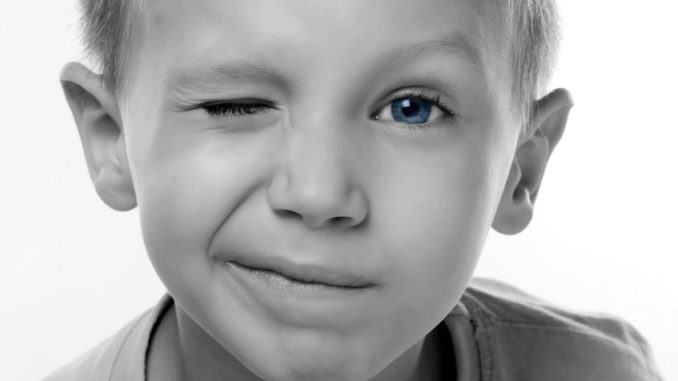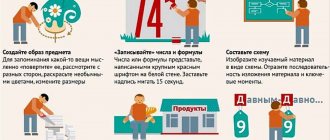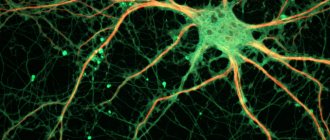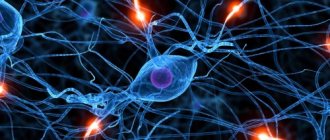Many young mothers have more than once encountered restless sleep of a small child. At first the baby has a hard time falling asleep, and then he tosses and turns and cries all night. Pediatricians explain this by a bunch of different problems related to the child’s nervous system.
Often, even a doctor cannot guess the diagnosis the first time, since abnormalities in the child’s nervous system can be different, ranging from neurosis to epilepsy. However, strengthening the child’s nervous system will in any case have a beneficial effect on well-being and stabilize the baby’s behavior.
Looking for a reason
As many online sources and magazines about children say, it may not only be a matter of the nervous system. They believe that overstimulation may also be the cause. We can also agree with this, but if the child is overexcited and cannot calm down, then the issue is still in the nervous system.
Since in infancy they get tired quickly and need regular healthy sleep, and if the child cannot relax and sleep normally, then something is bothering him. Many specialists are accustomed to referring to teeth. It’s hard to believe, but teeth have nothing to do with it, since manifestations of irritation in a child are very rarely caused by teething.
The cause can only be found through a series of tests and procedures related to the child’s nervous system. This list includes: general blood and urine analysis, ultrasound of the brain and heart, ECG, and so on. The most important thing is that you need to promptly detect the cause and try to eliminate it. It is important to do this practically without drugs that will have a detrimental effect on the baby’s health.
Conservatism, love of stability
So, you remember the difficulties of switching-transitions for your child. And on weekdays all the “holes” are already known, you know where the baby gets stubborn and gets stuck. You have even learned to adapt to the child and make concessions. But on weekends - you try to load them with different activities, impressions, trips - the child needs to switch many times, more than on a regular day, he is knocked out of the regime. If the number of transitions is one and a half to two times higher than the child’s usual daily number, by the evening the likelihood of hysterics increases sharply. A large number of transitions means serious overstimulation , a serious overload of impressions.
This works not even up to two years, but up to four, up to four and a half years. With age, a child is able to endure a greater number of transitions from one to another. What are considered transitions? These are routine moments plus a change of hands: I sat with my mother in the morning, then the nanny came, the nanny was replaced by the grandmother, the grandmother was replaced by the father. By evening the child is insane. Transition is a change of environment. We stayed at home in the morning, then went to the shopping center, then to grandma’s, from grandma’s to the pool, and stopped somewhere else on the way to visit. Just transitions - and the inevitable hysteria at the end of the weekend.
In general, young children are big conservatives . They love traditions, they love that everything is recognizable and that the day is similar to one another. They love the regime. For them, the regime is the external skeleton that children hold on to. And if they are knocked out of their usual environment, knocked out of their routine, they feel very uncomfortable, unstable, like a hermit crab without a shell.
This will work for quite a long time, up to three to three and a half years. If you want to raise a child with a stable psyche, you need to try to stick to the regime. This is usually difficult for adults, because for many adults, especially non-rhythmic adults, life according to a schedule is essentially like a constant “Groundhog Day”. You wake up and every day you have the same thing.
But the child needs this stability. If there is no stability, he feels unsettled. This is due to the fact that a huge amount of information about the world is unknown to the child. He lives, and around him there are 80-85% unknown. And the regime and the home world are what he knows, where he feels confident. Contrary to the ideas of parents, children of this age have a desire for novelty only in exploring the physical world. But the desire for new experiences appears later, after three and a half years.
The love of stability is the bane of short trips. If you like to go away for a few days or a week or two, then there is a high probability that the child will get used to the changed situation for the first five to seven days. Then there will be a short period when he has already gotten used to it, and you are still resting, and then - a return, after which he will get used to the previous home conditions for a week or more. There are rare, rare exceptions of children who switch quickly, and children who simply grew up traveling, and for them this is a “passable” option.
We evoke positive emotions
The initial point in this system is observing the baby’s emotions. If it seems to you that your child is too calm and does not smile, then you need to cheer him up. This is difficult, especially if the child laughs very rarely. Making a child happy with toys is not exactly what is needed. Firstly, there is little benefit or effect from this, and secondly, there is no benefit to health. So, it is best to use a regular gymnastic ball.
There are a number of exercises that develop muscles and calm the baby. Rolling on a ball makes the baby happy and distracts him from negativity. It is important in these exercises that there is not one parent with the baby, but two. Mom and dad play a protective role for the baby. Cohesion in the family gives the child confidence in life, which will influence his future position in society.
Rapid formation and decay of new skills
One more feature. The child very slowly develops some skills that are not quite characteristic of his age, advance ahead of time, and are very quickly lost. The formation of new skills is very slow, and their loss occurs very quickly in the absence of daily training. For example, a child was potty trained earlier than necessary. They trained and trained, they spent a record amount of effort; the child was left with his grandmother or nanny for three days - all skills were completely lost.
Consolidation takes a long time, but loss occurs quickly. This is due to physiology, because the nerve trace is formed slowly and fades very quickly, disappearing in the absence of reinforcement, in the absence of repetition of this action. So if you want to achieve skills that are not quite age-appropriate, like potty training, or knowing shapes and colors, or knowing letters, you can do it with tremendous effort and daily repetition. As soon as you stopped repeating, the child lost the skill.
If a skill is age-appropriate, it arises quickly and does not go away. This is such a very sure test of whether you give something on time or not. When the child has matured, when there is a purely physical basis, he instantly grasped it, and it remained.
Using a relaxing massage
The second point is massage with oils. It must be performed by a trained professional. It is important to create conditions of calm. To do this, you need to light an aromatic lamp with sandalwood oil and turn on calm music. Mozart’s music is best suited for shaping a child’s psyche, as it has a beneficial effect on the development of a child’s creative abilities. The massage should last 30 minutes. The number of sessions can be 10 or 15, depending on the situation and problem.
Nutritious food
Sugar, soda, various sweets - all these products excite the nervous system and make the child excited. Try to exclude them from the children's menu. For healthy growth and development it is necessary to include in the diet:
- Oatmeal. It contains vitamins and microelements that promote brain function.
- Eggs. In addition to protein, they contain choline. It helps develop brain cells and strengthens nerves.
- Milk and dairy products. They contain carbohydrates - a source of energy for brain function. And the proteins and vitamins present in large quantities in these products help maintain the functioning of the nervous system.
- Salmon. It is a source of unsaturated fatty acids.
- Legumes, particularly beans. It is a storehouse of protein, vitamins and fiber.
- Berries. Contains natural antioxidants that help strengthen the immune system.
- Lean beef. Supplies the body with minerals, zinc and iron. Zinc improves a child's memory and promotes better brain function.
- Vegetables and fruits. They contain many vitamins and microelements necessary for the development of the baby.
In addition to the diet, you should pay attention to the timing of meals. Teach your little one to eat at the same time, this will help avoid unhealthy snacks and indigestion.
Proper rocking of the baby
The next important point in strengthening the child’s nervous system is proper motion sickness. In order for a child to sleep, it is not necessary to pump him up with sleeping pills or other drugs. There is a proven method of motion sickness on a gymnastic ball. The main thing is that this ball is not overly inflated. It is necessary to dim the light in the room, take the baby in your arms and sit on this ball. Then, rocking on it with your child, he will gradually fall asleep. The idea itself is that this technique has a calming effect. In addition, you do not have to walk with a heavy baby in your arms.
how to strengthen the nervous system
The post was edited a year after the question, maybe. the answer was unexpected for us, maybe it will help someone
MILK INTOLERANCE BECAME THE CAUSE OF 5 YEARS OF SLEEP PROBLEMS, HYSTERICS, WAIMS, AND CONSEQUENTLY Gastrointestinal Disorders!
DON'T LISTEN TO ANYONE - YOUR CHILD CANNOT BE CARIOUS, LOOK FOR THE PROBLEM WITH GOOD DOCTORS!
Girls, help me figure out what to do with my child, how to strengthen the nervous system.
We were born with hypoxia during labor, there was a convulsive syndrome on the first day, after 1 day of resuscitation we were observed in hospital No. 8, nothing was found. I think the cramps were related to my latent diabetes. born 2700, 49 cm, no diabetes. I still have hypothyroidism, I don’t have congenital hypothyroidism.
The second child was born healthy, I carefully monitored my sugar levels, gestational diabetes was under control, without insulin.
So here it is. The eldest is 4 years old, we still can’t cope with periodic bouts of hysteria, we still have problems sleeping
— we can’t sleep during the day, we wake up at night, often screaming and hysterical. From birth I had problems with sleep, slept in fits and starts, did not have the same sleep as the younger one - he sleeps peacefully for 3 hours, and the eldest always screamed in her sleep, cried, could not move into another phase of sleep, and woke up. When I was 2 years old I had problems with tantrums for 40 minutes, but then I outgrew it, I got over it, I drank Magne B6 constantly in courses, it helped, as soon as I stopped it, I started all over again. At 3 months, they saw a cyst on an ultrasound scan, treated it with diacarb and asparkam, and it cleared up, and the terrible screams and arching stopped. but apparently, something remains somewhere that we still can’t cope with some kind of tearful state, we wake up - crying, a little something scared, upset or some kind of stress - hysterics. from a developmental point of view - physically - everything was on time, she spoke well, she spoke early, we worked with her, I was very afraid of developmental delay due to hypoxia during childbirth and convulsions.
We also had problems with our left leg since we were 9 months old when we tried to stand up; it was lagging behind in muscle mass, which is why we stumbled, fell, and the leg seemed to drag. The problem was almost eliminated by the age of 2, several months of treatment with massage, physiotherapy, electrophoresis with medicine for the nervous system especially helped. Now we go to an orthopedic kindergarten.
I’m very worried about her, we need to somehow strengthen the nervous system, she’s going to school soon, I don’t know how she’ll be there. please help with advice, who has had something similar and how you dealt with it.
Among the activities we have choreography in the kindergarten, we are not adding anything yet, because... She is tired and has been getting sick more often lately. Calming games include drawing, listening to audio fairy tales, puzzles, mosaics and ordinary girly toys; TV causes hysterical attacks in us, so in minimal doses, otherwise we try without it. We love the pool, but we don’t go because... We've been getting sick a lot lately.
Please do not write about mistakes in upbringing; I want to concentrate on the medical side of the issue. They didn’t particularly visit neurologists, especially after they tried to do a PhD on us at Filatovskaya and wrote us all sorts of nonsense after encephalograms about epilepsy, hydrocephalus, and so on. We tried to get by with magne b6, glycine, glycine forte, baths with calming herbs, educational conversations, we didn’t take any serious medications. but I feel that something else needs to be done.
Thank you.
PS We visited a neurologist and did an EEG with stimulation. we have epileptic activity, a response to photostimulation. They canceled TV, tablets, etc., sometimes we save ourselves with filmstrips when we want cartoons. We drink Magne B6 and Nervohel, we sleep at night, there were a couple of episodes in 3 weeks, but before that I was very tired physically or after an English class, which she begged me to go to.
ps after 2 months - we consulted a psychologist, because after the medications there was still a condition left, not so acute, but still. she said we have neurosis. She gave me literature and I bought it myself. and it really turned out to be so, apparently it’s normal not to sleep so much, plus a breakdown due to the birth of a baby. We started doing art therapy on our own, with a little help from psychologists from two friends; I’m an artist myself. We figured out where our neurosis came from, and we’ve accumulated a bunch of problems. everything is slowly going away. I never thought that art therapy helps so much - i.e. not just draw, but draw with the help of a psychologist (drawings on the topic of my family, friends, house, man, tree, three trees, etc., serial drawing technique). I'm shocked. the result is amazing. At the moment, we almost always sleep normally at night, but we still get up to go to the potty at exactly 0-30 plus or minus 10 minutes. but no longer hysterical. Sometimes we talk in our sleep; we’ve only had a couple of restless nights. We cope with problems more easily, we don’t cry for no reason, there are no evening tantrums from fatigue.
EDITORIAL AFTER A YEAR - they made an epiletogram in St. Luke - everything is fine, the problem of waking up after 2.5 hours remained.
We went to Neuromed to see somnologist Olga Ivanovna Begasheva, did a polysomnography, the doctor helped us in one visit - a very competent and professional doctor. It turned out that our entire condition was caused by intolerance to cow's milk protein. hence the rash, unknown to allergy sufferers, which we extinguished with fenistil, and it caused night apnea, plus apnea caused reflux, we were confirmed to have GERD (it was caused by dairy products and a number of other products). and also later found problems with the gallbladder, a bend in the gallbladder. Chofitol helped. We abolished all dairy products, as well as those that contained even the smallest amount of milk, we abolished yeast, beef, chicken, many things are banned, hopefully temporarily, we adhere to a diet for GERD. the child began to sleep and live normally. our night writings and day writings during sleep also stopped. Now we are on a diet to restore our gastrointestinal tract, while the liver is enlarged, we are being treated. but allergists and pediatricians, some gastroenterologists at one time did not help us, and Olga Ivanovna Begasheva immediately identified the problem. Many thanks to her! This is a real doctor who knows not only his field, but also related fields, which made it possible to help a child who had been suffering for 5 years.
Write if you have any questions, I will try to answer based on our situation, I am not a doctor, if someone’s child is experiencing similar difficulties and you are looking for a solution to similar situations.
Childhood neuroses
The psyche of a small child is very fragile and subject to outside influence. Against the background of numerous prohibitions, stressful situations and lack of attention, neuroses can form. This is a neuropsychiatric disorder that is characterized by the appearance of unusual psychosomatic and behavioral symptoms. Children are often nervous precisely because of the occurrence of neuroses.
The peak development of the pathological condition is considered to be the age of 5-6 years, when the child begins to behave inappropriately. In some cases, neuroses appear as early as 2-3 years of age.
Age characteristics
Treatment of a nervous child is not always necessary, as these may be developmental features:
- Until the age of 3, nervousness is caused by innate behavioral characteristics. The situation can be aggravated by the birth of a subsequent child, if the eldest is not yet 3 years old.

Parents must “grow up” with their own child, take into account his characteristics and communicate with him as equals from childhood. This is the only way to maintain trust and peace in the family.
Rules of conduct for parents
Nervous children are most often the fault of their own mothers and fathers. Psychologists advise that in order to get rid of problems, you need not only to show your baby to a specialist, but also to reconsider your own behavior model:
- It is important to smooth out conflicts that arise during upbringing.

In addition, it is important not to show your own negative emotions in front of children, as kids can adopt this behavior model.
What is cortical immaturity?
The cerebral cortex is its upper shell (1.5-4.5 mm), which is a layer of gray matter. Being the main feature that distinguishes humans from animals, it performs many functions on which its life activity and interaction with the environment depend. Our behavior, feelings, emotions, speech, fine motor skills, character, communication are what make a person a social being, that is, a personality.
In a child, the central nervous system is at the initial stage of formation (the cortical system is determined by the age of 7-8, and matures by the period of puberty), so it is unprofessional to talk about an immature cerebral cortex in children, according to Dr. Komarovsky. Such a diagnosis is not included in the international classification of diseases. Medical specialists, psychologists and speech pathologists, when diagnosing such a pathology, imply brain dysfunction.
Useful tips
A nervous child a year or later can cause a lot of trouble, so sometimes it is easier to prevent the development of mental disorders than to treat them. Psychologists give several recommendations on this matter:
- Regardless of the situation, it is necessary to remain calm, since the mother’s nervousness is transmitted to the child, especially for young children;
- it is important to teach your son or daughter to apologize for wrongdoings, but it is also important to ask for forgiveness from the baby;
- to raise calm offspring you need to be patient;
- you need to set a positive example through your own actions;
- the interests of the child should not be put above all else;
- It is important to give the child the right to choose.
In addition, children of any age are in dire need of the care and love of their parents.

Nervous tics
Unfortunately, psychological problems do not end with neuroses. Doctors note that every nervous child from 3 to 18 years old can be nervous due to tics. There is evidence that almost every fifth child experienced such phenomena. For convenience, experts have divided the types of nervous tics into 3 groups:
- Motor - biting lips, grimacing, involuntary twitching of the head or limbs.

Depending on the degree of severity, there are local (one muscle group is involved) and mixed (nervous tics of several types at once).
Therapy for nervous tics
The condition requires medical attention in the following cases:
- the nervous tic did not go away on its own within a month;
- the pathology causes any inconvenience to the baby;
- severe symptoms or a combination of several types of tics.
In most cases, treatment of nervous tics in children is easy to treat if their causes were related to psychosomatics. In more severe cases, the problem may remain permanent.
Therapy for nervous tics of a psychological type is prescribed similar to the treatment of neuroses. It is necessary to select a set of sedative medications, as well as conduct several sessions with a qualified psychotherapist. In some cases, folk treatment in the form of soothing tinctures of valerian, lemon balm, motherwort or aromatherapy through baths with essential oils of lavender and mint is sufficient.
Treatment of secondary tics, which are caused by injuries or diseases, must be started only under the supervision of a doctor who will identify the true diagnosis and prescribe competent therapy.
Consequences and treatment
However, in some cases, these pathologies accompany the patient throughout his life and can provoke consequences such as deterioration of health and lead to serious illnesses: neuropathy, epilepsy, cerebral palsy, hydrocephalus.
If everything is more or less clear with the wording and reasons, then it’s time to talk about what worries mothers most - what the consequences might be. Absolutely nothing if we are talking about the most common physiological immaturity. By the age of 5, the baby’s cerebral cortex will have completed its formation, and by the end of puberty it will officially be considered fully mature. No treatment is required: a child, surrounded by care and love, will grow and “mature” in a completely natural way.
In most cases, massage and gymnastics help relieve many neurological manifestations without harm to the child in the future. With congenital malformations of the brain, prognosis depends on the degree of functional impairment, but this again has nothing to do with immaturity.









